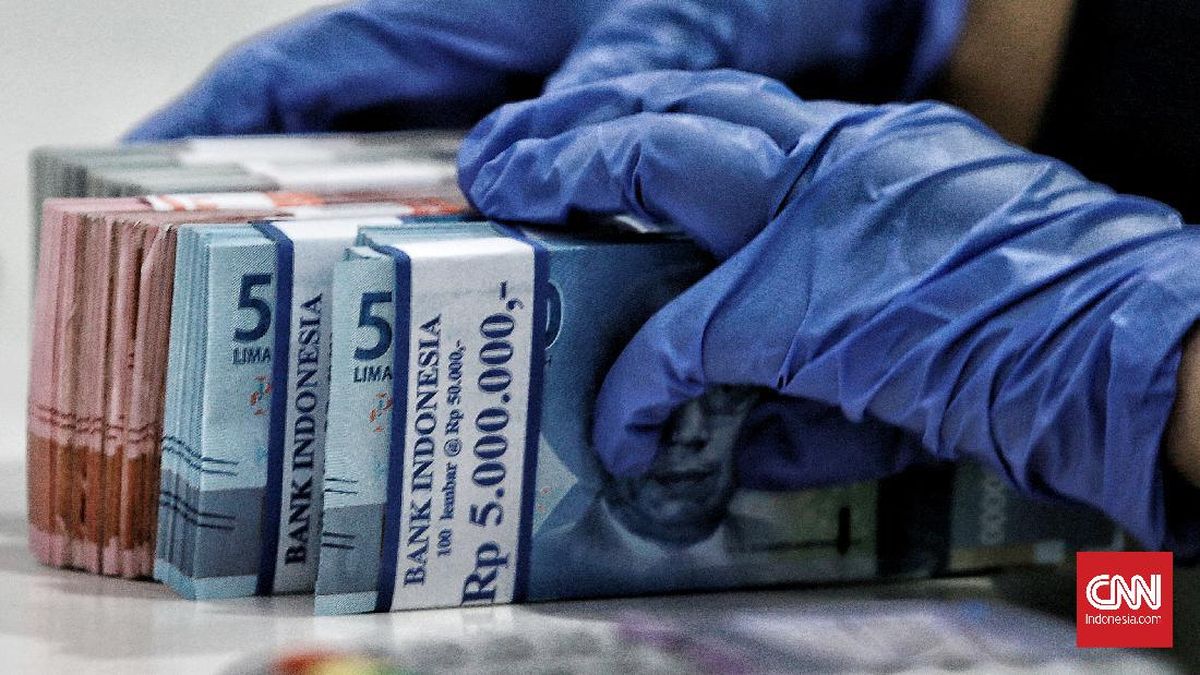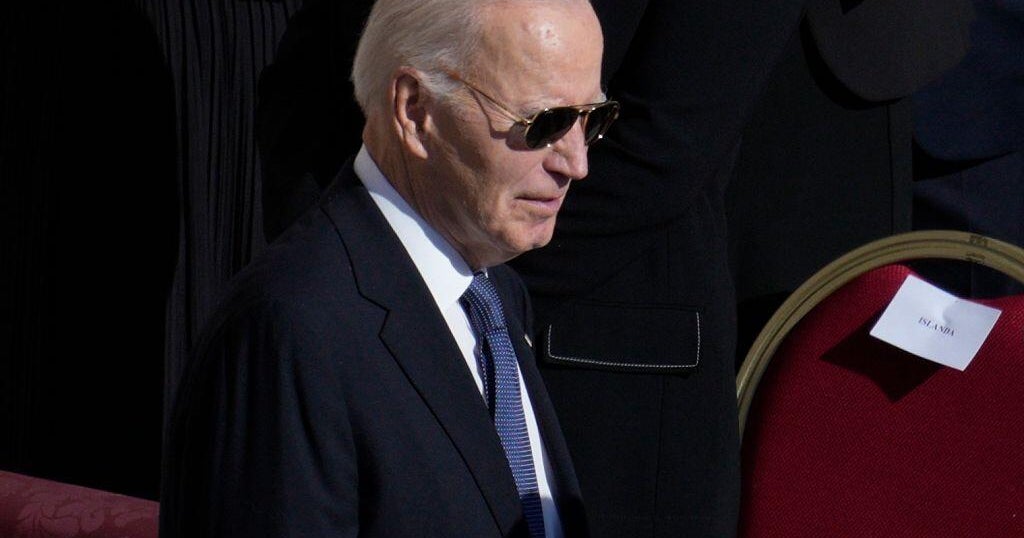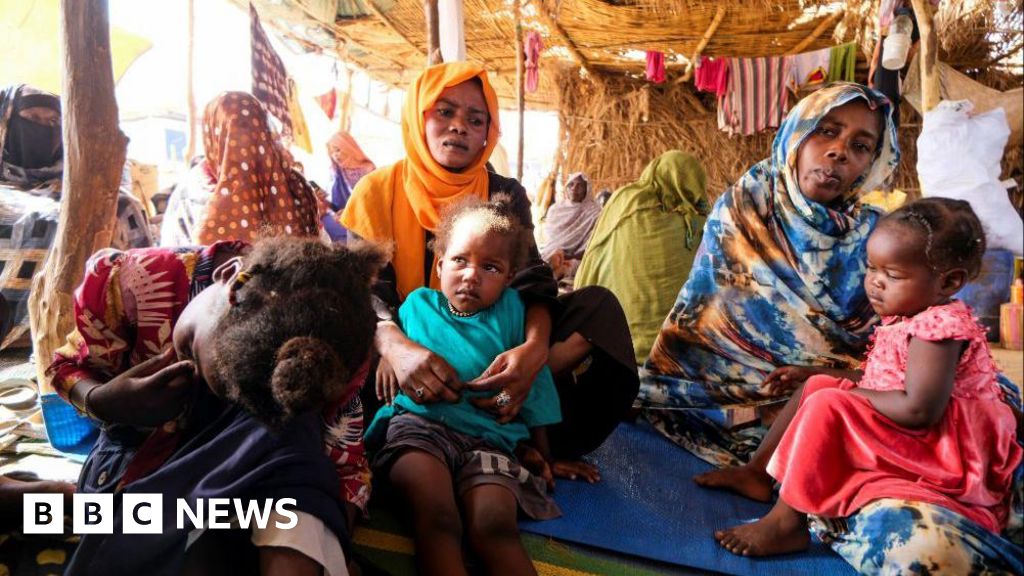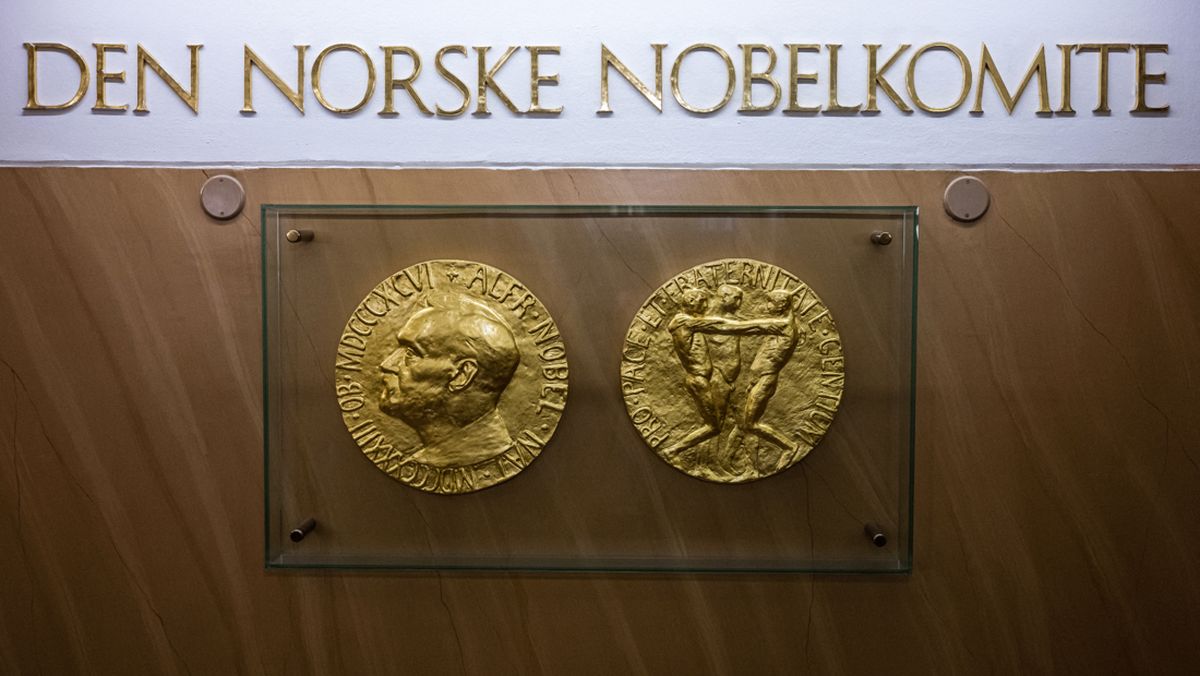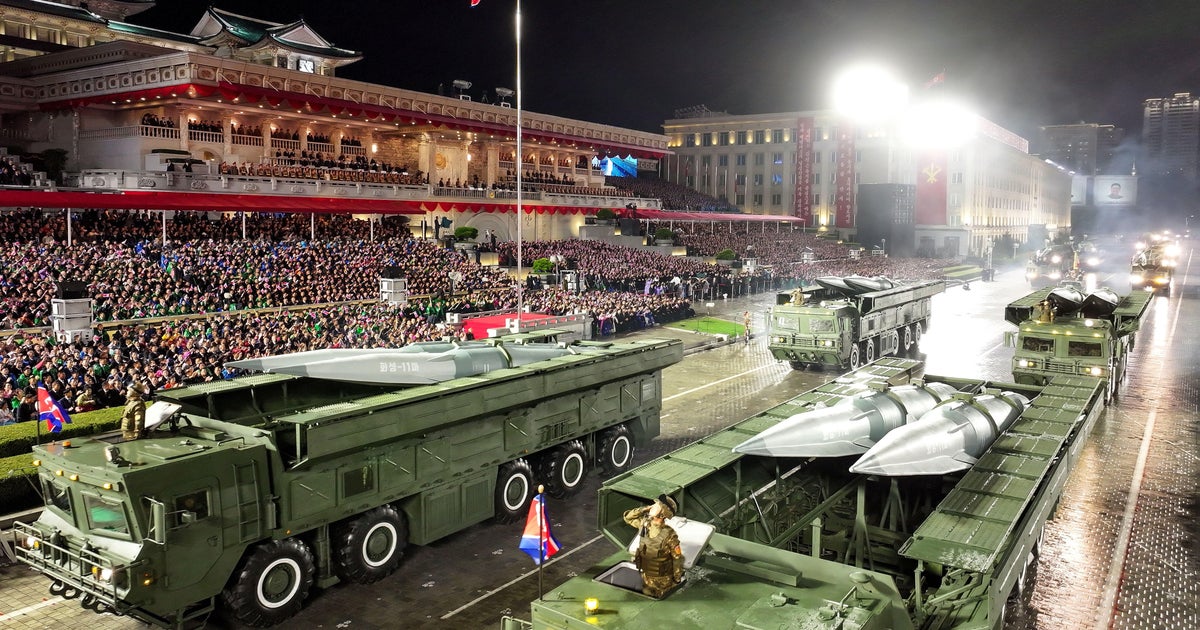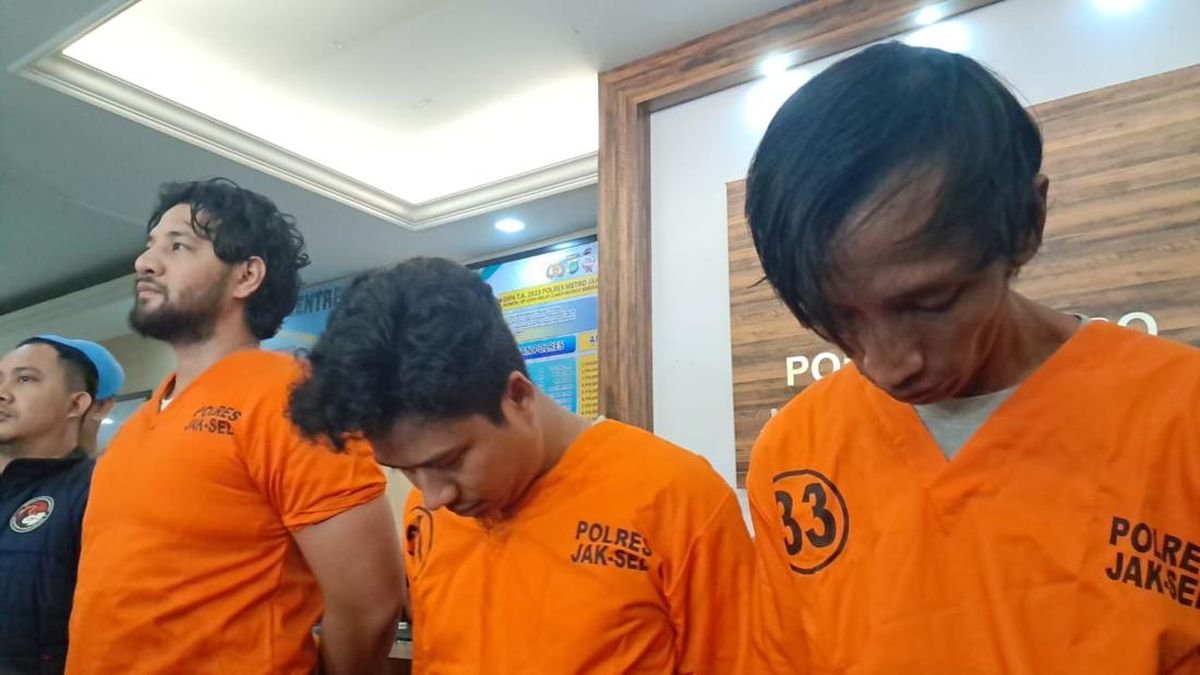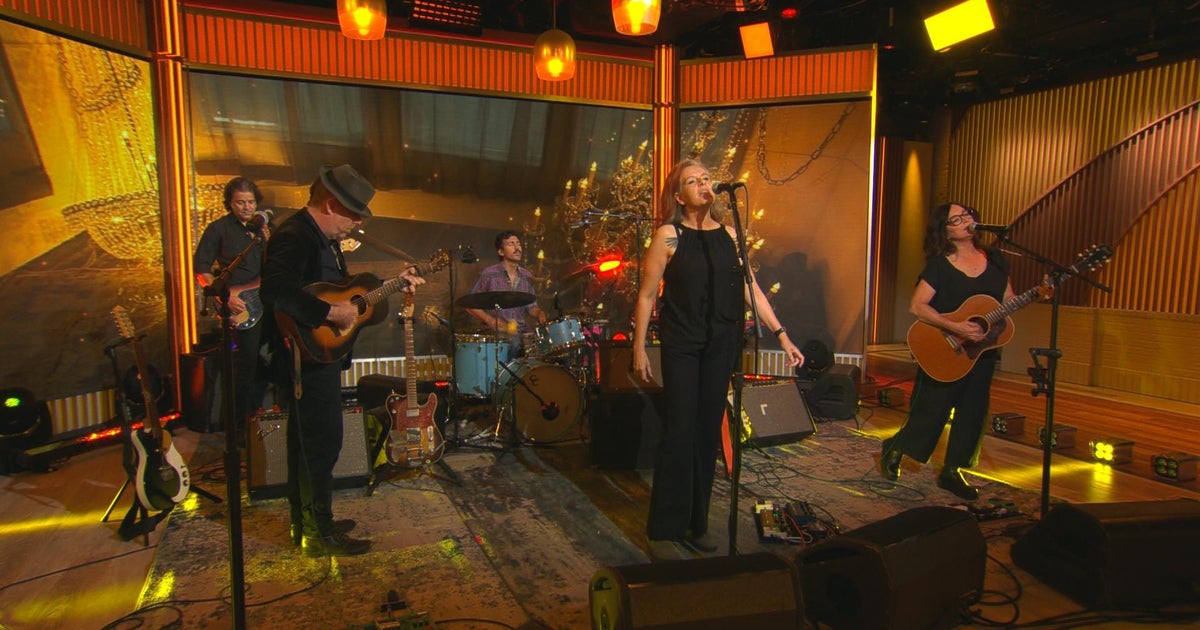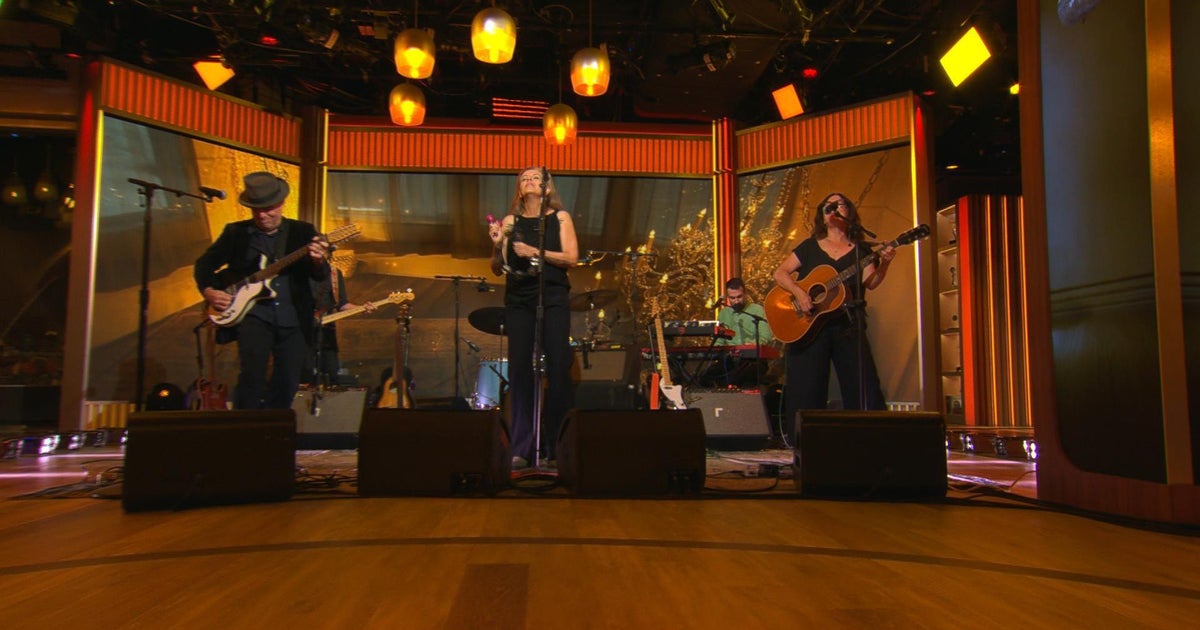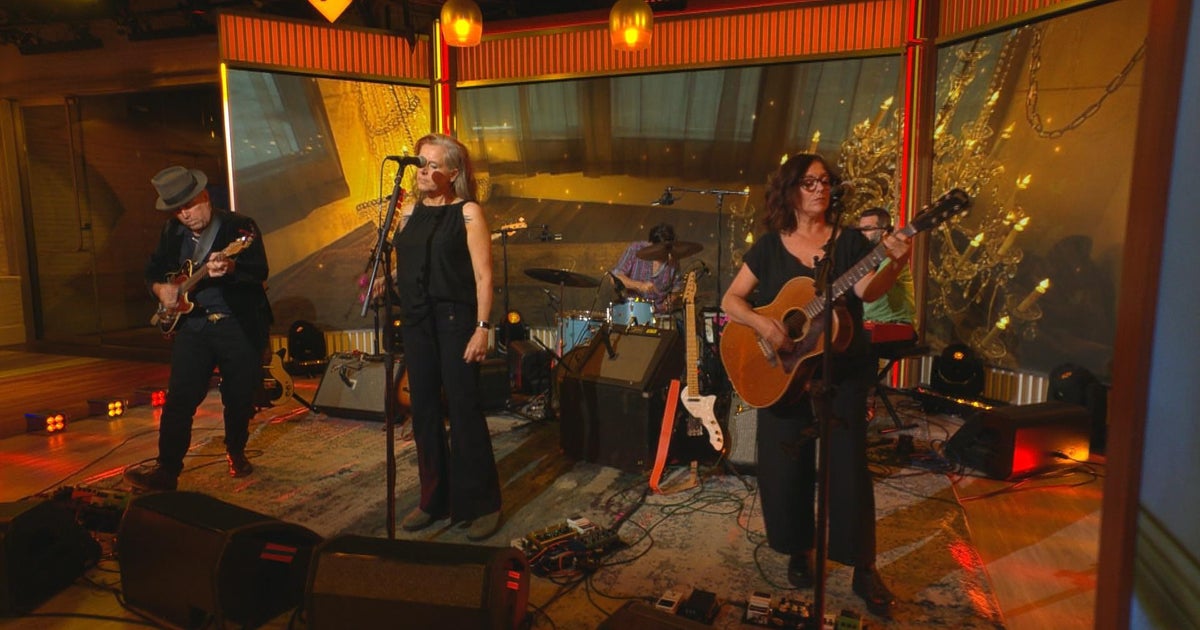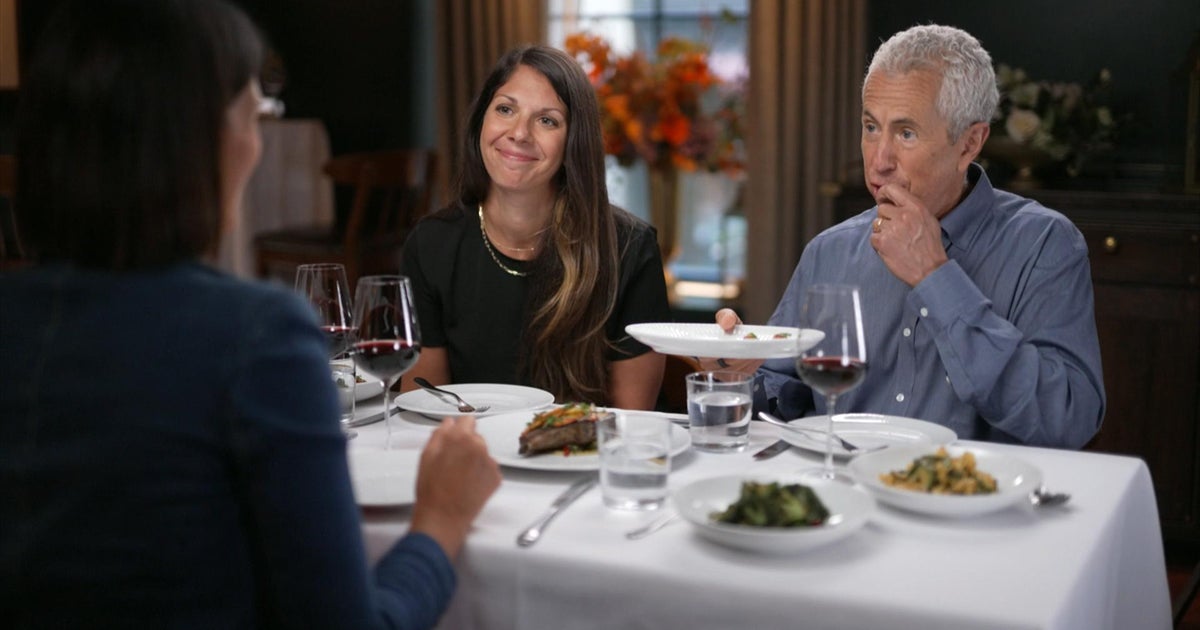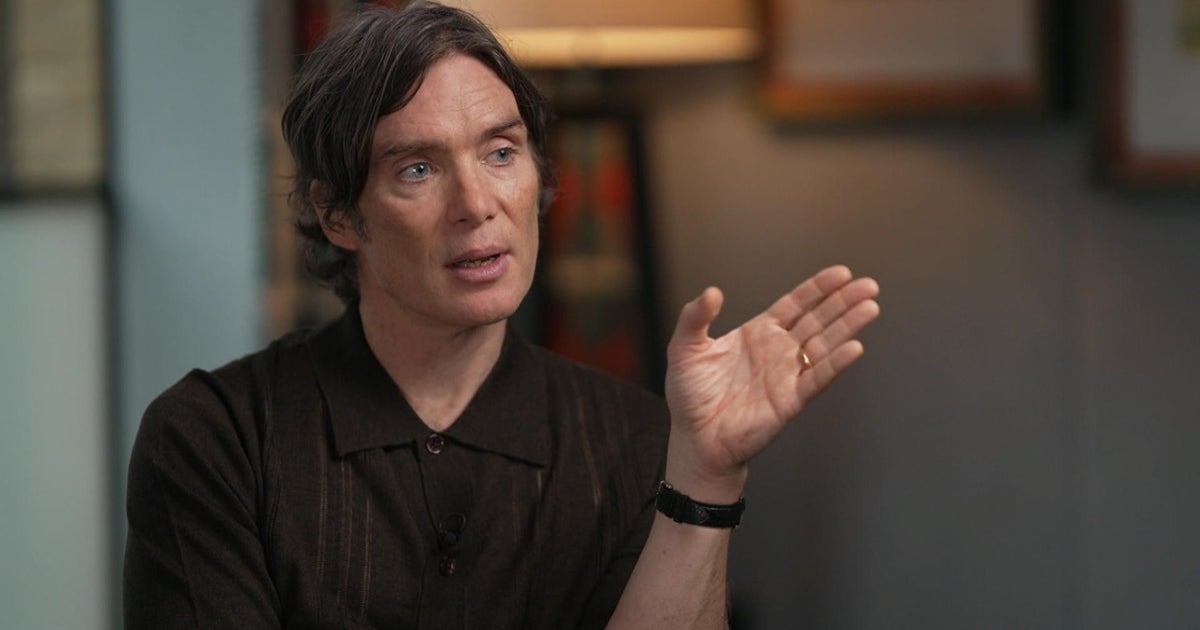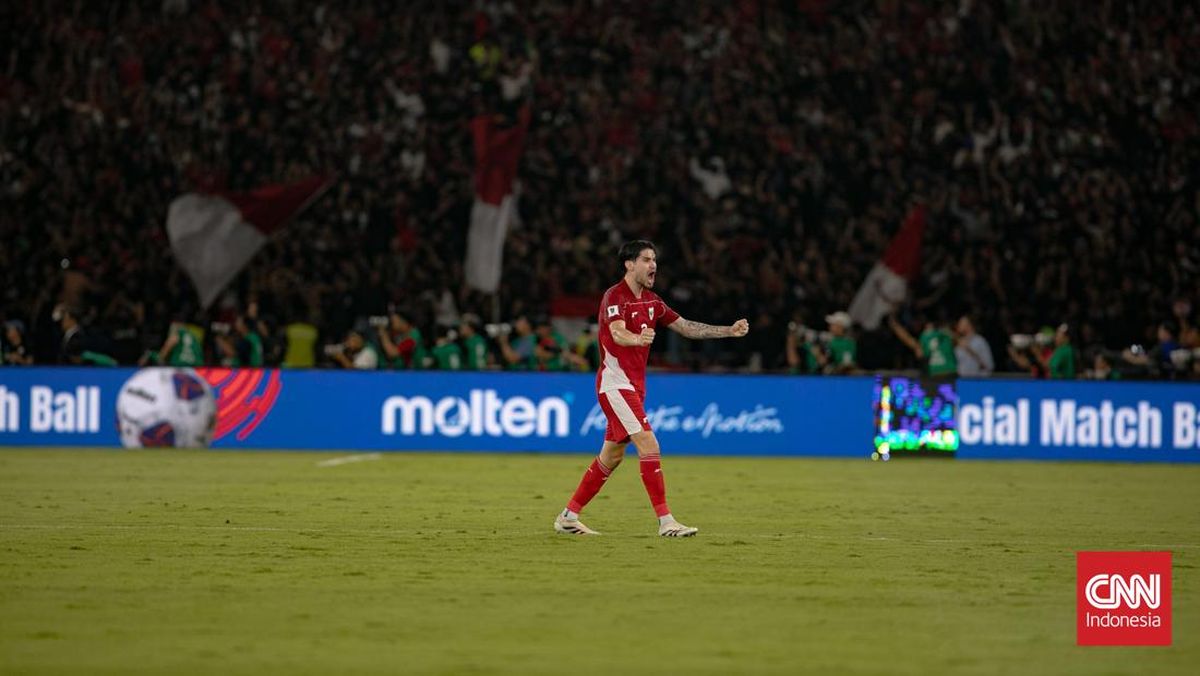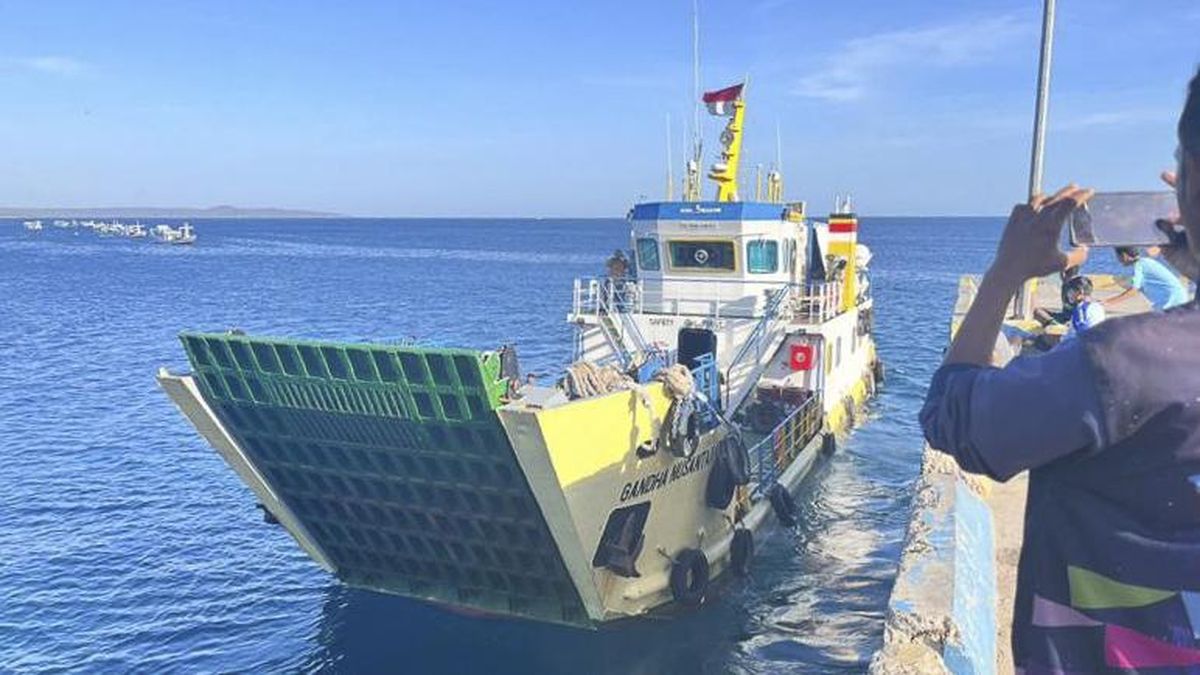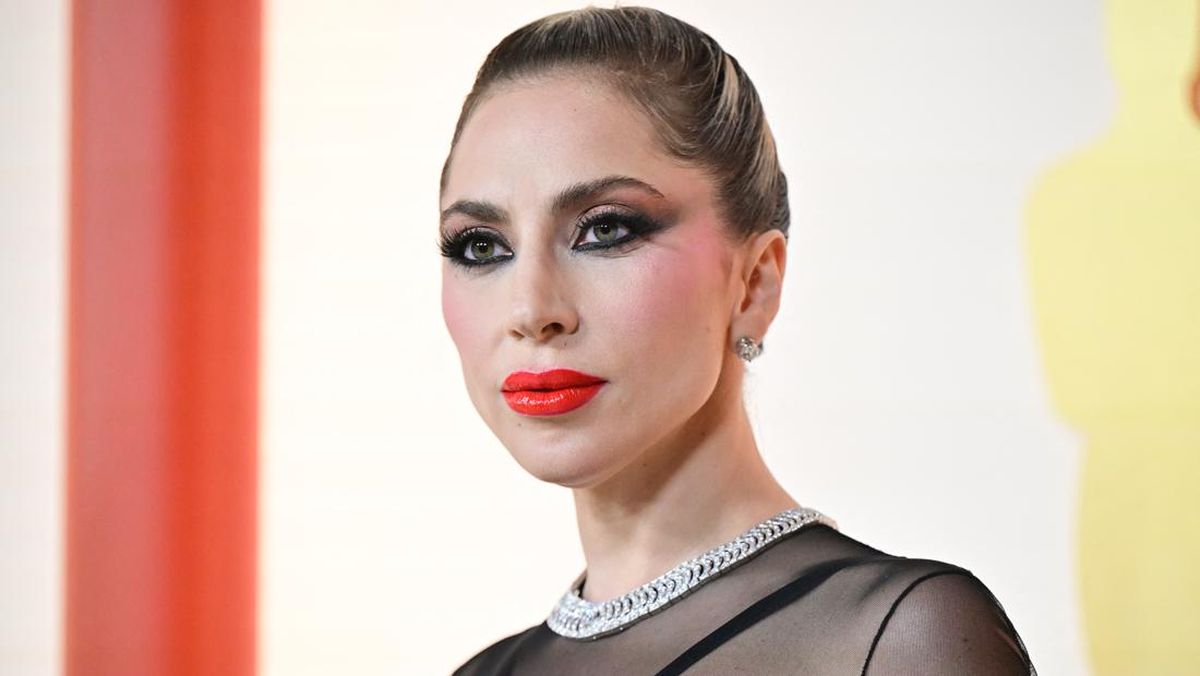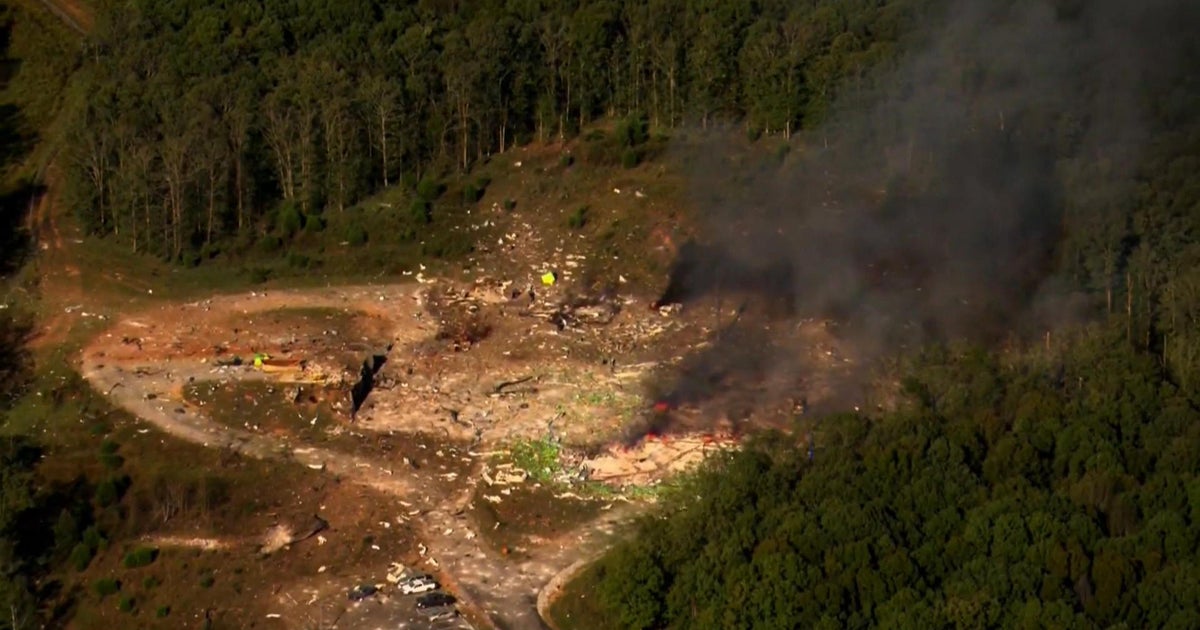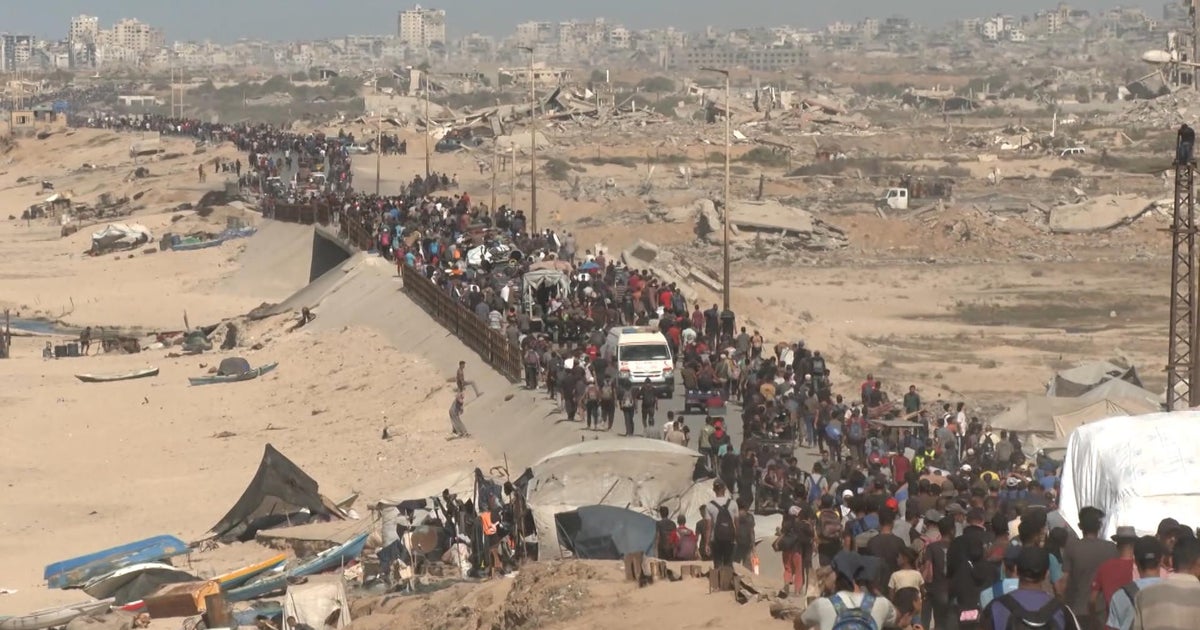Vanessa BuschschlüterLatin America editor, BBC News Online

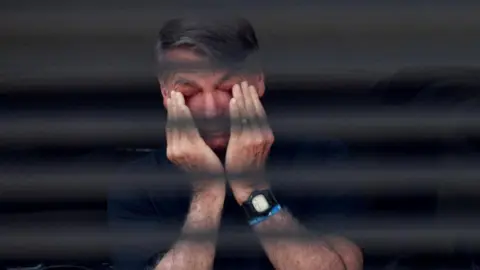 Reuters
Reuters
Former President Jair Bolsonaro is under house arrest
Jair Bolsonaro, who governed Brazil from January 2019 to December 2022, has received a 27-year jail sentence after being found guilty of plotting a coup.
Four out of five Supreme Court justices tasked with trying the former president concluded he led a conspiracy to overturn his 2022 election loss to left-wing rival Luiz Inácio Lula da Silva. One justice acquitted him.
Here, we recap some of the basics you need to know about the trial.
What has Bolsonaro been found guilty of?

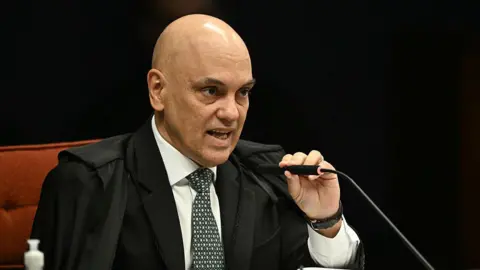 AFP via Getty Images
AFP via Getty Images
Alexandre de Moraes was one of the five Supreme Court justices tasked with delivering a verdict in the trial
Bolsonaro has been convicted on the following five charges:
- Armed criminal conspiracy
- Attempted abolition of the democratic rule of law
- Attempted coup d'état
- Violent destruction of public property
- Damage to protected national heritage sites
The charges all relate to the former president's attempt to stay in power after he was beaten by Lula in the election in October 2022.
The justices said that he knew of a plot which included plans to assassinate Lula and his vice-presidential running mate, Geraldo Alckmin, and to arrest and execute Alexandre de Moraes - the Supreme Court justice who has been overseeing Bolsonaro's trial.
The conspiracy was thwarted because it failed to get the backing of the army and air force commanders. Lula was sworn in without incident on 1 January 2023.
But a week later, on 8 January, thousands of Bolsonaro supporters stormed and vandalised government buildings in the capital, Brasília.
The security forces intervened and around 1,500 people were arrested.
The justices found that the rioters had been incited by Bolsonaro whose plan, they said, was for the Brazilian military to intervene, restore order and bring him back to power.
What was Bolsonaro's defence?
Bolsonaro vehemently denied all the allegations.
He pointed out that he was in the US on 8 January 2023 and said that he was the victim of a "witch hunt".
He maintained that the charges were politically motivated and designed to prevent him from running again in the 2026 presidential election.
While Bolsonaro is already barred from running for public office until 2030 for falsely claiming that Brazil's voting system was vulnerable to fraud, he had declared his intention to fight that ban so he could stand for a second term in 2026.
He and his lawyers also questioned the impartiality of the Supreme Court panel tasked with judging him and his co-defendants.
Bolsonaro has long viewed Alexandre de Moraes as his nemesis, calling the judge a "dictator" and accusing him of abusing his power.
He also pointed out that two of the other justices on the panel had close links to Lula.
One of those justices, Cristiano Zanin, was Lula's defence lawyer between 2013 and 2023 and in that role helped quash his corruption conviction.
Another, Flávio Dino, served as Lula's justice minister from 2023 to 2024.
What happens next?
The Supreme Court sentenced Bolsonaro to 27 years and three months in prison shortly after convicting him of plotting the coup.
But he will not be transferred to a prison until his lawyers have exhausted all legal recourses.
His lawyers are expected to raise questions about the length of the sentence and argue for leniency or plead for Bolsonaro to be kept under house arrest rather than be sent to prison.
However, an appeal against the verdict itself would only have been possible if two out of the five justices had voted to acquit.
Where is Bolsonaro now?
Bolsonaro has been following the trial from his home in Brasília.
He was placed under house arrest at the beginning of August after a police report alleged that he and his son, Eduardo, had tried to interfere in the trial.
Police said they had found a document on Jair's mobile phone - dating back to February 2024 - which suggested he had planned to evade criminal proceedings by seeking asylum in Argentina.
They also accused Eduardo of lobbying the Trump administration on behalf of his father and banned father and son from communicating with each other.
What are the links between Bolsonaro and Trump?

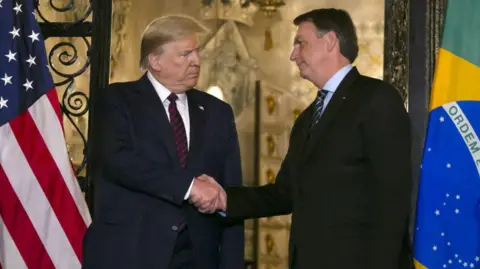 Eva Marie Uzcategui/Bloomberg via Getty Images
Eva Marie Uzcategui/Bloomberg via Getty Images
Trump hosted Bolsonaro at Mar-a-Lago in 2020
The US president had drawn parallels between what is happening to Bolsonaro and his own legal battles in the past following his refusal to accept defeat in the 2020 US election.
Asked about Bolsonaro's conviction on Thursday, he said: "It's very much what they tried to do with me, but they didn't get away with it at all."
US Secretary of State Marco Rubio slammed the ruling, saying Washington "will respond accordingly to this witch hunt".
The two men also have family ties, as their sons are friends.
Eduardo Bolsonaro has been lobbying the Trump administration to pressure the Brazilian government to stop the trial.
Back in July, Trump raised tariffs on Brazilian imports to 50%, citing the country's treatment of Bolsonaro as a trigger for the hike.
Following his father's conviction, Eduardo Bolsonaro said he expected additional US sanctions to be slapped on Brazilian officials.
Who were Bolsonaro's co-defendants?
Bolsonaro was not the only one on trial. Seven men, all of them close allies of his, were found guilty of being his co-conspirators. They are:
- Alexandre Ramagem, former spy chief
- Adm Almir Garnier Santos, former navy commander
- Anderson Torres, former security minister
- Gen Augusto Heleno, former minister for institutional security
- Mauro Cid, Bolsonaro's former assistant
- Gen Walter Braga Netto, former defence minister
- Gen Paulo Sérgio Nogueira de Oliveira, former defence minister.
All of them have been convicted of the three most serious charges, that is armed criminal conspiracy, attempted abolition of the democratic rule of law and attempted coup d'état.
All with the exception of Alexander Ramagem have also been found guilty of the two lesser charges of damaging property and national heritage sites.
What is Bolsonaro known for?
His presidency was characterised by his confrontational style, which his supporters praised as "unfiltered" and "genuine" but which his critics derided as "foul-mouthed".
When Brazil became one of the countries hardest hit by the Covid outbreak, Bolsonaro's handling of the response to the pandemic came under the spotlight. His dismissal of Covid as "a little flu" caused outrage among those who had lost family members to the virus.
Internationally, he came under criticism for cutting the budget of agencies tasked with protecting indigenous peoples and the environment, prompting some to label him as "a danger to the Amazon".
But his conservative stance also inspired fierce loyalty among his supporters, many of whom have continued to back him throughout his legal battles, holding prayer meetings and mass demonstrations to show their continued support for him and demand he be acquitted.
When was Bolsonaro elected?

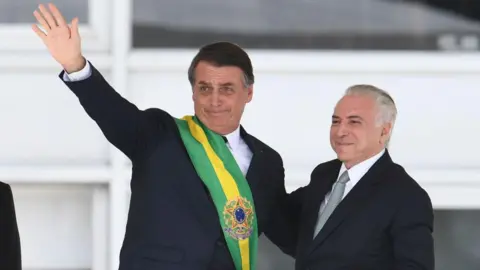 AFP via Getty Images
AFP via Getty Images
Bolsonaro was sworn in on 1 January 2019
Bolsonaro comfortably beat the candidate of the left-wing Workers' Party, Fernando Haddad, in the 2018 presidential election.
The Workers' Party had been rocked by corruption scandals and many Brazilians said they were ready for a change after what had been four rocky years in Brazilian politics.
The previous elected president, Dilma Rousseff of the Workers' Party, had been impeached in 2016 for manipulating the budget.
Her vice-president, Michel Temer, served out the remainder of her term but was deeply unpopular.
The best-known politician in the Workers' Party, Lula, was barred from running for office at the time because he had been convicted of corruption.
The Workers' Party was left in disarray by the barring of its top candidate and ended up fielding the little-known Haddad at the last moment, who went on to lose the election to Bolsonaro.
Lula's corruption convictions were quashed years later, and he went on to beat Bolsonaro in the 2022 election.
What did he do before becoming president?

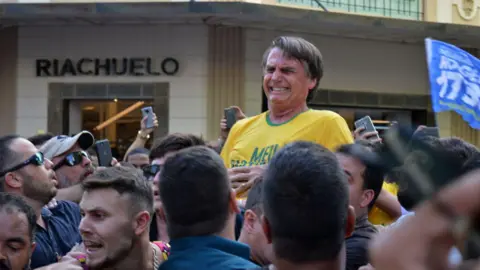 AFP via Getty Images
AFP via Getty Images
Jair Bolsonaro was stabbed in 2018 while on the campaign trail
Before he entered politics, Bolsonaro was paratrooper, and in his first years as a congressman, he fiercely defended the interests of the armed forces.
He served seven terms in Congress - from 1991 to 2018 - but did not become well known beyond the confines of his home state of Rio de Janeiro until he ran for the presidency in 2018.
Many Brazilians angered by rising crime levels approved of his hard-line approach to law and order.
But what really catapulted him into public consciousness was the attack he suffered at a campaign rally just a month before the first round of the 2018 election.
A man who was later ruled mentally ill stabbed Bolsonaro in the stomach as the presidential candidate was being carried aloft by his supporters.
Bolsonaro lost 40% of his blood, and ever since, he has suffered from recurrent problems stemming from the intestinal wounds he sustained.

 4 weeks ago
15
4 weeks ago
15
